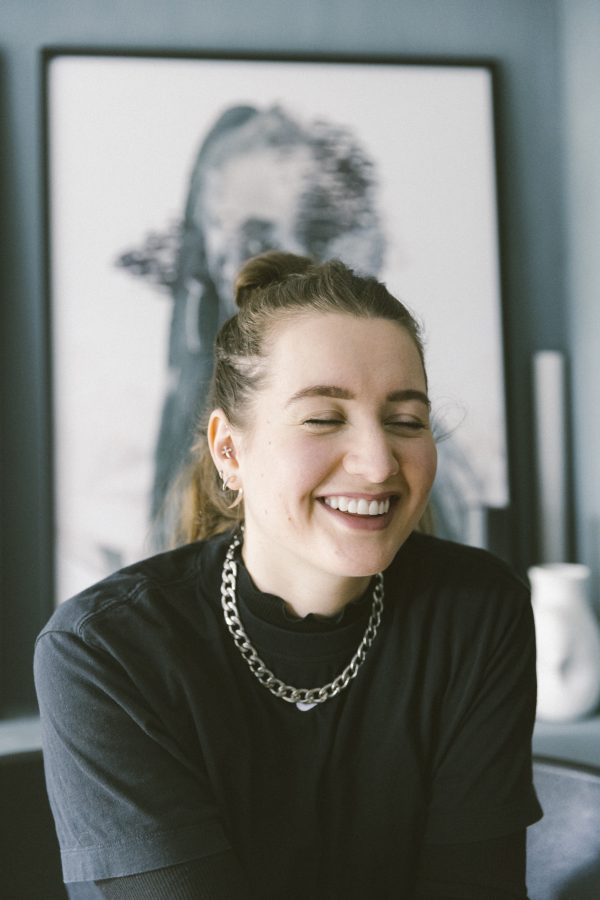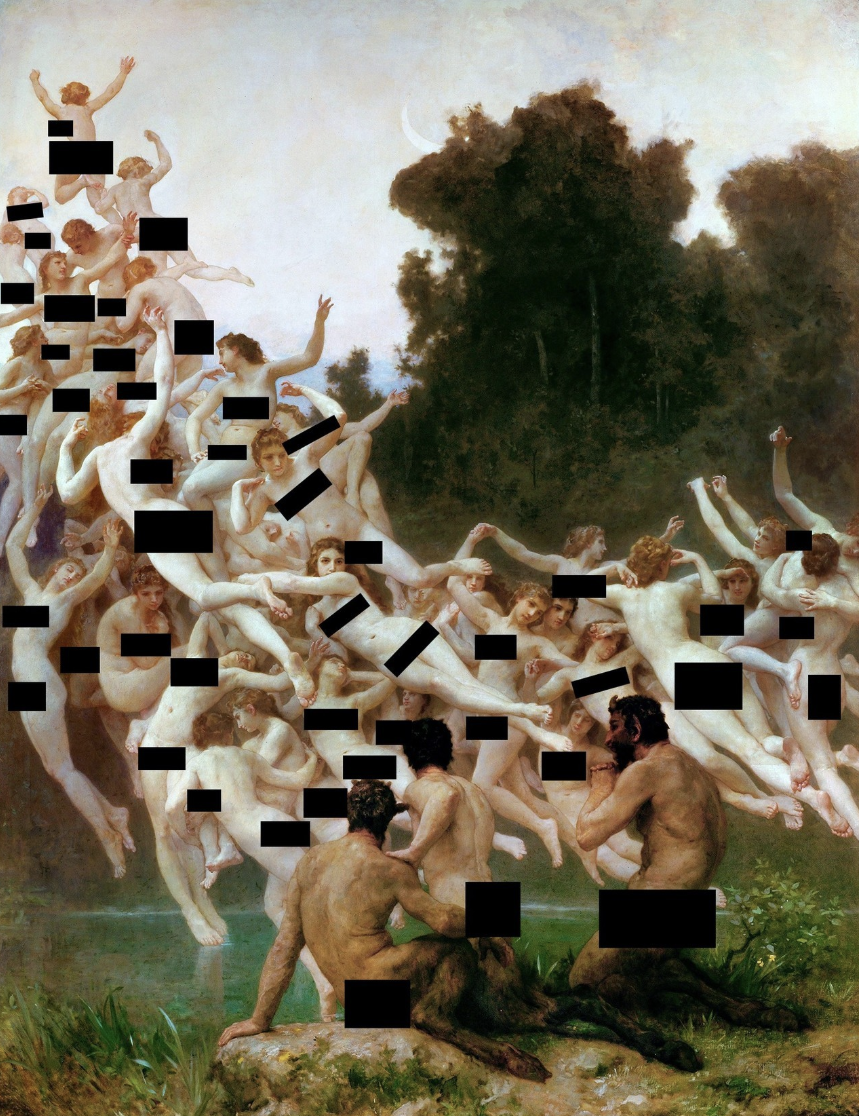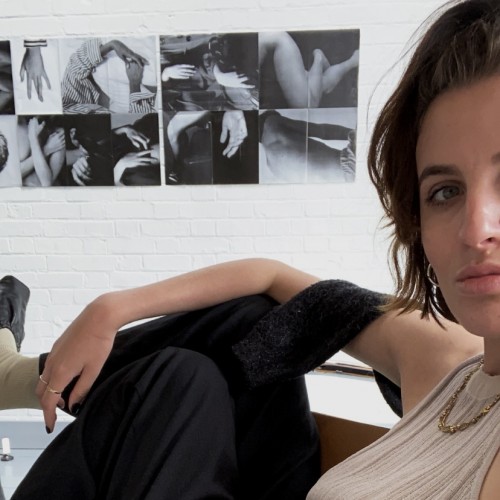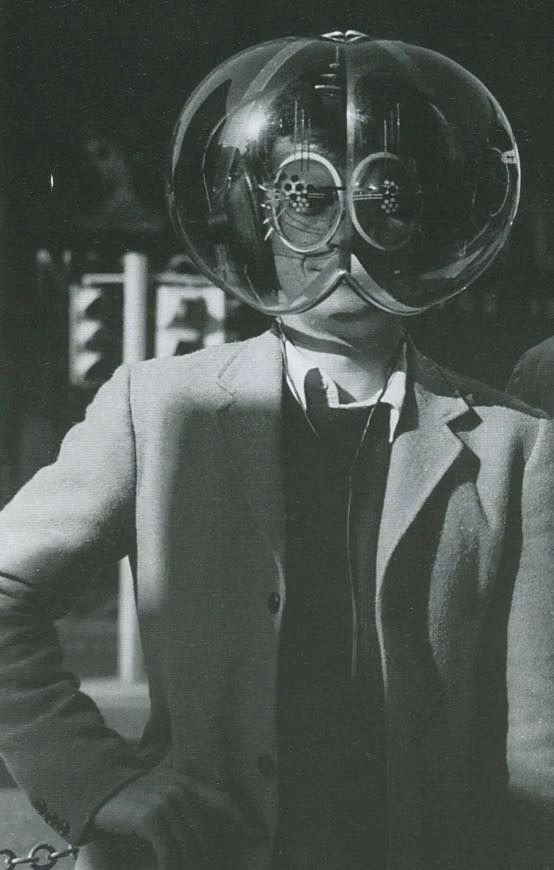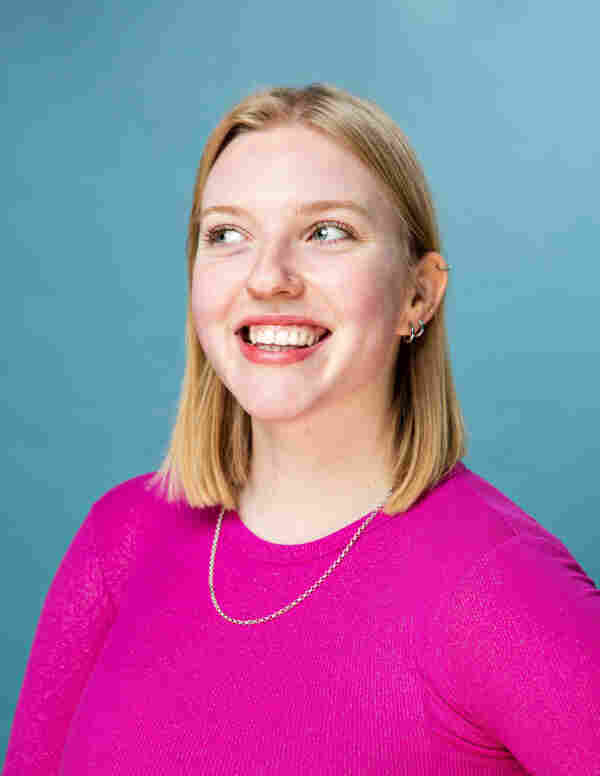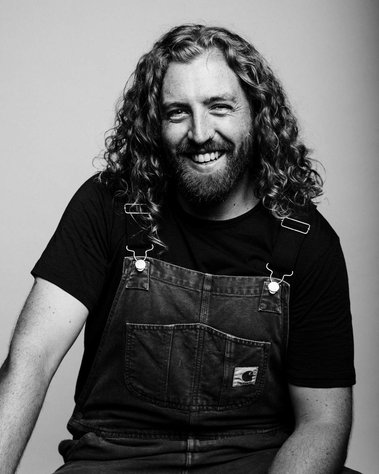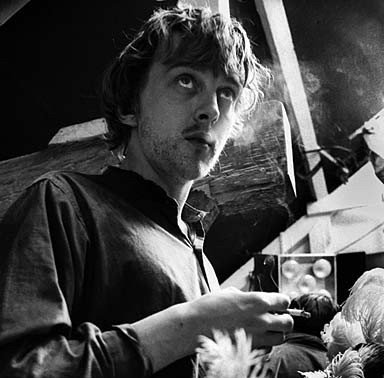Read Time 10 minutes
The Power of Passion Projects
In a recent conversation with art director and photographer Duncan James, we explored how a quiet curiosity turned into a decade-long documentation of a vibrant British subculture: today’s Mods.
Outside of client briefs and commercial campaigns, Duncan has spent the last ten years building Mad Mods And A Camera, a personal photography project that has grown into exhibitions, books and a respected place within a scene he once admired from a distance.
We spoke to him about how it all started, what’s kept him motivated, and what it means to photograph a community you’re not part of but care deeply about.
What does it take to earn trust as an outsider? How do you keep a long-term project creatively fresh? And why is it worth documenting scenes that often sit outside the mainstream?
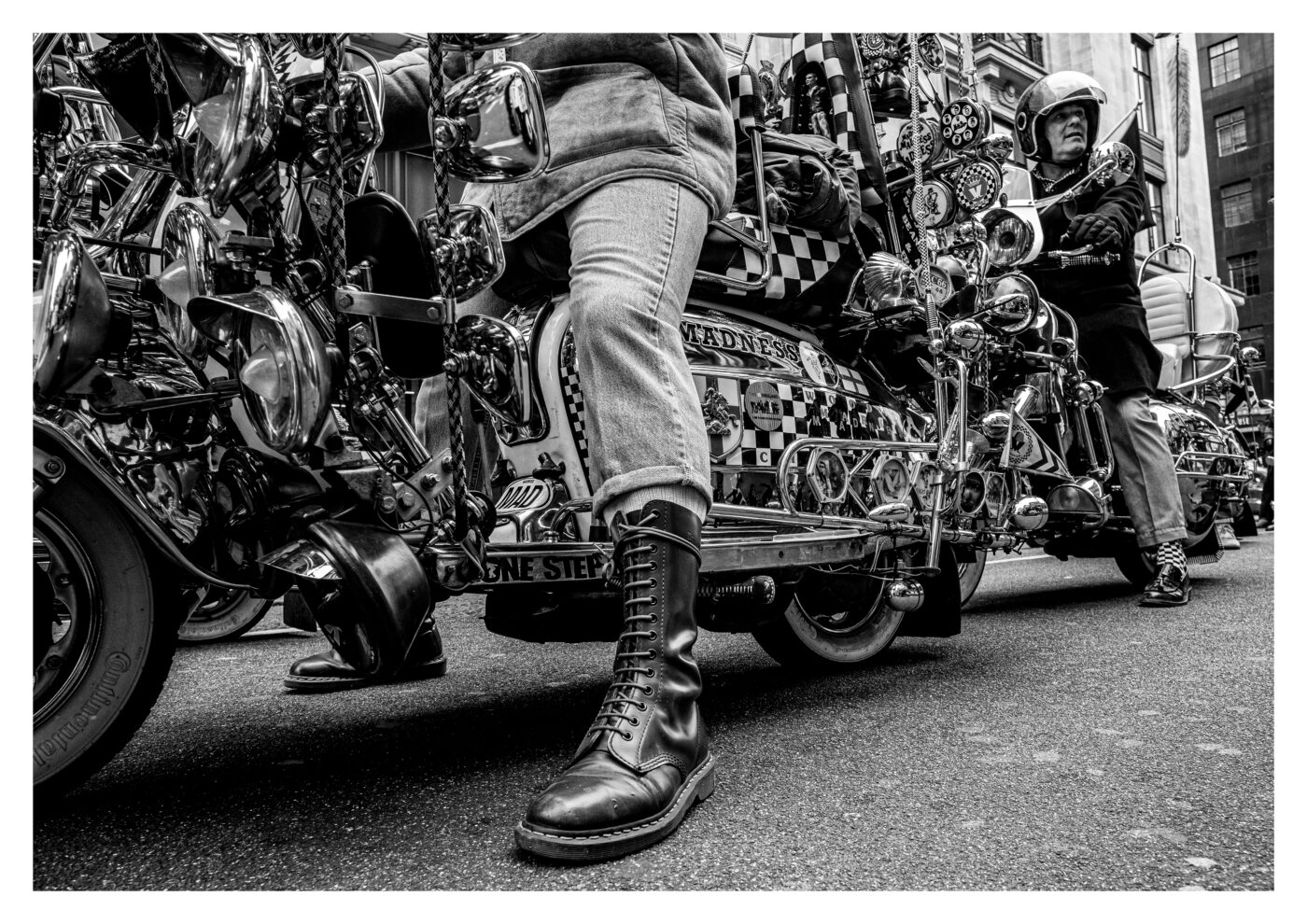
Starting on the Outside Looking In
How did you first get involved with the Mod scene, and what inspired you to document it through photography?
To be honest, I don’t see myself as having a deep connection to the Mod scene; I see myself as an outsider, looking in.
Don’t get me wrong – growing up in the era of The Jam, The Specials, Madness, Siouxsie and the Banshees, The Clash, and The Sex Pistols meant I understood how fashion really influenced the music you listened to and vice versa. And one day, a friend brought a book into school called Mod: A Very British Phenomenon. Looking at the images in that book really captured my imagination. So much so that I bought myself another book: Mods! Over 150 Photographs from the Early ’60s of the Original Mods.
You could say that’s when I became fascinated with the whole Mod look. The style, the music, the parkas, the lights and mirrors on the Vespas and Lambrettas. Those two books have stayed on my bookshelf to this day, so I suppose the idea of making my own record of the Mod scene was always in the back of my mind.
Then one early Sunday morning in November 2015, I was driving past a café in North London and I saw a group of Mods and scooter boys. That sparked an idea. I don’t quite know why, but I felt compelled to go back and take some shots of them. Then, when I shared some of those images on Instagram, I discovered that there’s still a vibrant Mod scene in the UK today. I guess it was that chance encounter ten years ago that reconnected me to the feeling I had when I first read those books as a teenager. And over the past ten years, it’s blossomed into a genuine passion for the Mod scene and the people who make it.


Why Keep Going?
What has kept you motivated to continue this ongoing project over the years?
There’s a very simple answer to that – it’s the people. They represent a truly British subculture and I feel their story needs to be told. From Rideouts and Mod Weekenders to the individuals themselves, there’s a real love for everything to do with the Mod scene and all the different groups in it. So, I think it’s important to document what’s going on in the Mod scene today.
When I started, I soon realised there wasn’t a contemporary view of the movement to inspire the next generation of Mods or to celebrate what Mods are all about in the 21st century. It’s that drive to document a hidden subculture that feeds my own passion for capturing their world. The Mods are still going strong, and hopefully my images will still be here long after I’m gone.
Mad Mods And A Camera is all about building trust, friendships and strong connections with all the Mods who’ve welcomed me into this vibrant subculture. But, as I said, I’ll always see myself as a guest rather than a participant, happy to be on the periphery. I’m currently planning an exhibition that will be the launch of my second Mad Mods And A Camera photographic book, celebrating all elements of today’s Mods. And it’s almost ten years since I decided to grab my camera from home and went back to ask a group outside a café in North London if I could take a few shots. But it really only feels like yesterday. So, in a way, I feel like I’ve only just started – and that’s a motivation in itself.


Growth Through Trust
How has the Mod scene and your approach to photographing it evolved since you started?
Rather than the Mod scene evolving, I think it’s my understanding of it that’s evolved over the past ten years. When I started out, I didn’t realise just how strong the culture was, or know about the different subcultures. I’ve done shoots with Scooter boys, Suede heads, even the Modfather himself, Paul Weller. And, as the project’s grown, I’ve been invited to events in different countries, too.
As for my approach to photographing the Mod scene, when I started out, my first experience was sitting on the back of a scooter during what the Mods call a Rideout – it was quite an introduction! From there, I moved on to being a spectator, taking shots as they set off on Rideouts. But I was surprised at how quickly Mad Mods And A Camera became known in the Mod community – at one of the earliest events I was photographing, a Mod I’d never met before came up to me and said: “Keep spreading the love, Duncan.” I think that’s when I realised this project was getting bigger than I’d ever imagined it would.
That word-of-mouth among Mods meant that I was soon being invited to a variety of different events. So as well as taking shots of Mods on their scooters, I was photographing dancers and DJ’s at music weekends. And I even got the chance to take shots of some individual Mods at their homes, which was an incredible privilege. Ultimately I want to depict real moments, whether at Rideouts, club meetings or social events, and try to document the subculture as it stands now. So, what I’ve always looked for in a shot is that moment in time that completely captures the scene. But of course, I’m constantly learning with every event and Rideout I cover. I suppose it’s always been about keeping the photography fresh – trying to reflect the uniqueness of the scene and the Mods themselves while I’m documenting them. For me, that’s the real challenge.


Lessons from the Long Haul
What have you learned by sticking with this project for so long, both about the scene and your own photography?
Working with Mods of all ages and backgrounds has given me incredible insights into the scene and a real passion for the people. And as I’ve learned more about Mods and their culture, I’ve made some true friends and gained the trust of people across the scene. They’ve really welcomed me in – you could say I’m hooked. But I think this is what’s enabled me to capture such authentic images. And when I receive messages from people around the world asking for prints, or complimenting me on what I’m doing, I get genuine pleasure from that. The fact that Mad Mods And A Camera has grown the way it has, and lasted so long, is just a very happy coincidence.
To this day I still don’t know why I went back and photographed those Mods and scooter boys outside a North London café, but I’m so glad I did. From a photographic point of view I hope I’m keeping my photography fresh. I still see myself as a beginner, but I’d definitely give myself A+ for effort.


Clicking with People
What challenges have you faced when documenting a subculture over time, and how have you navigated them?
If I’m truly honest I haven’t come across any challenges in the scene at all. And that’s down to the wonderful people I’ve met. For me this project isn’t just about taking photographs. It’s about gaining genuine trust from today’s Mods, so my photography is authentic in capturing their subculture.
And the project really depends on the people. It’s all about them.
Gaining their trust is the key to ensuring that the project keeps growing. It all comes back to my photographic philosophy, which is based on the quote from the American photographer and photojournalist, Alfred Eisenstaedt: “It’s more important to click with people than to click the shutter.”
Start with Care
What advice would you give to photographers looking to document a community or subculture over the long term?
You need to have a real passion for your subject, because I believe that’s the only way you’ll gain people’s trust. And once you have their trust, you’ll be able to capture unique images that truly bring their subculture to life.

Follow Mad Mods and a Camera ✨
subscribe for the latest artist interviews,
historical heronies, or images that made me.
what are you in the mood for?



